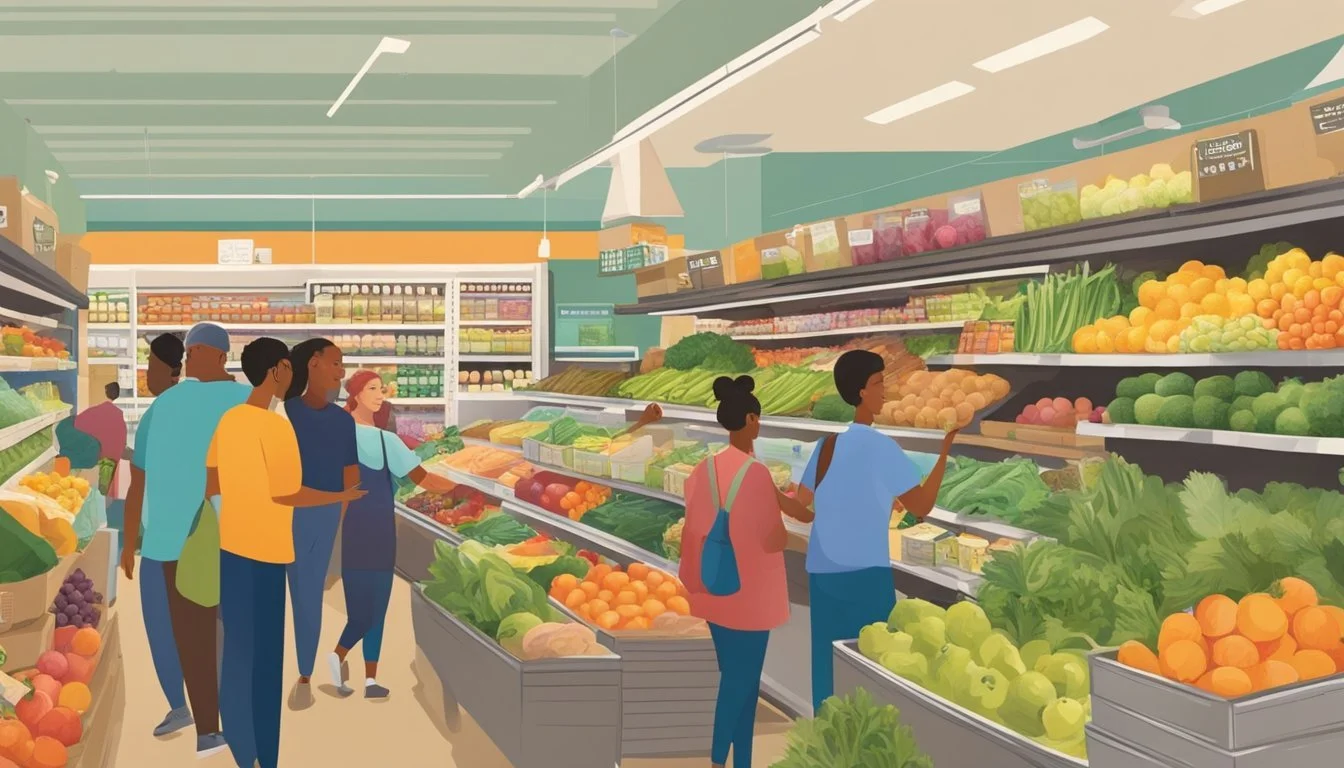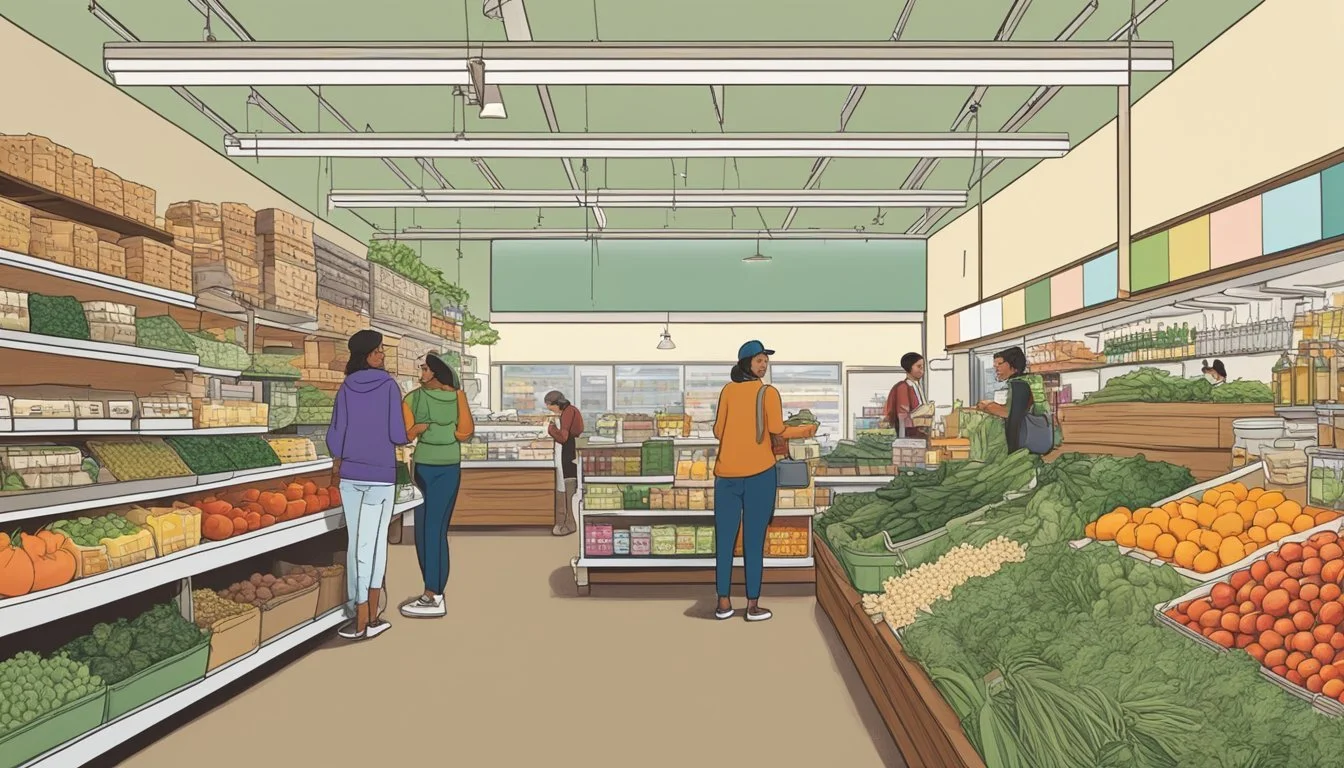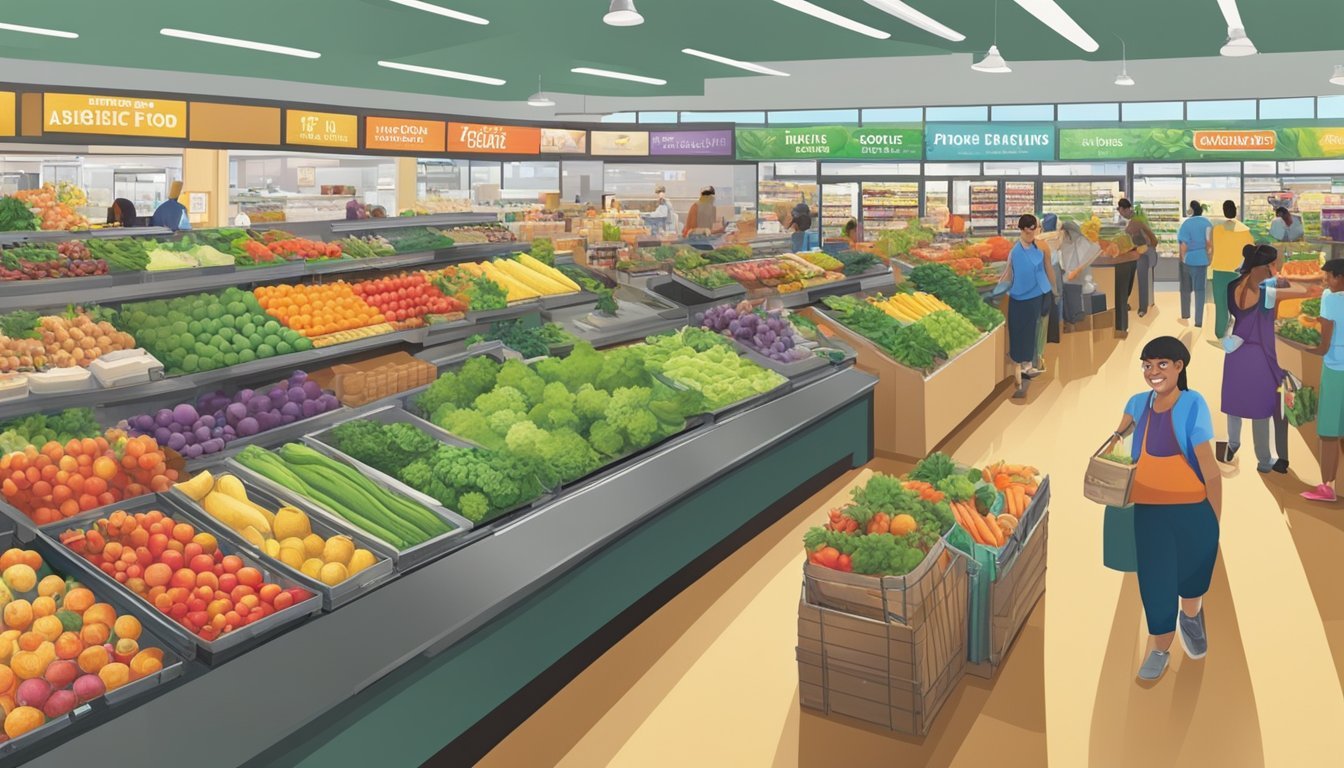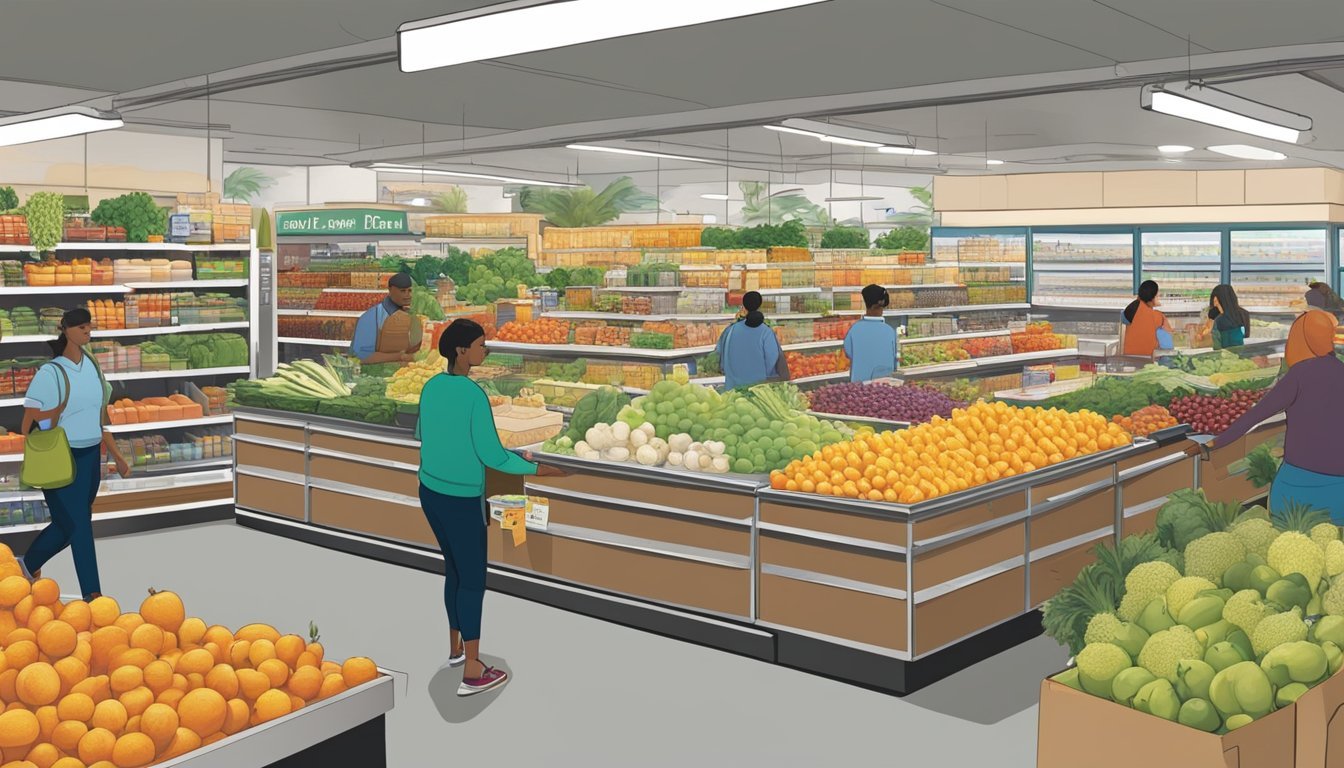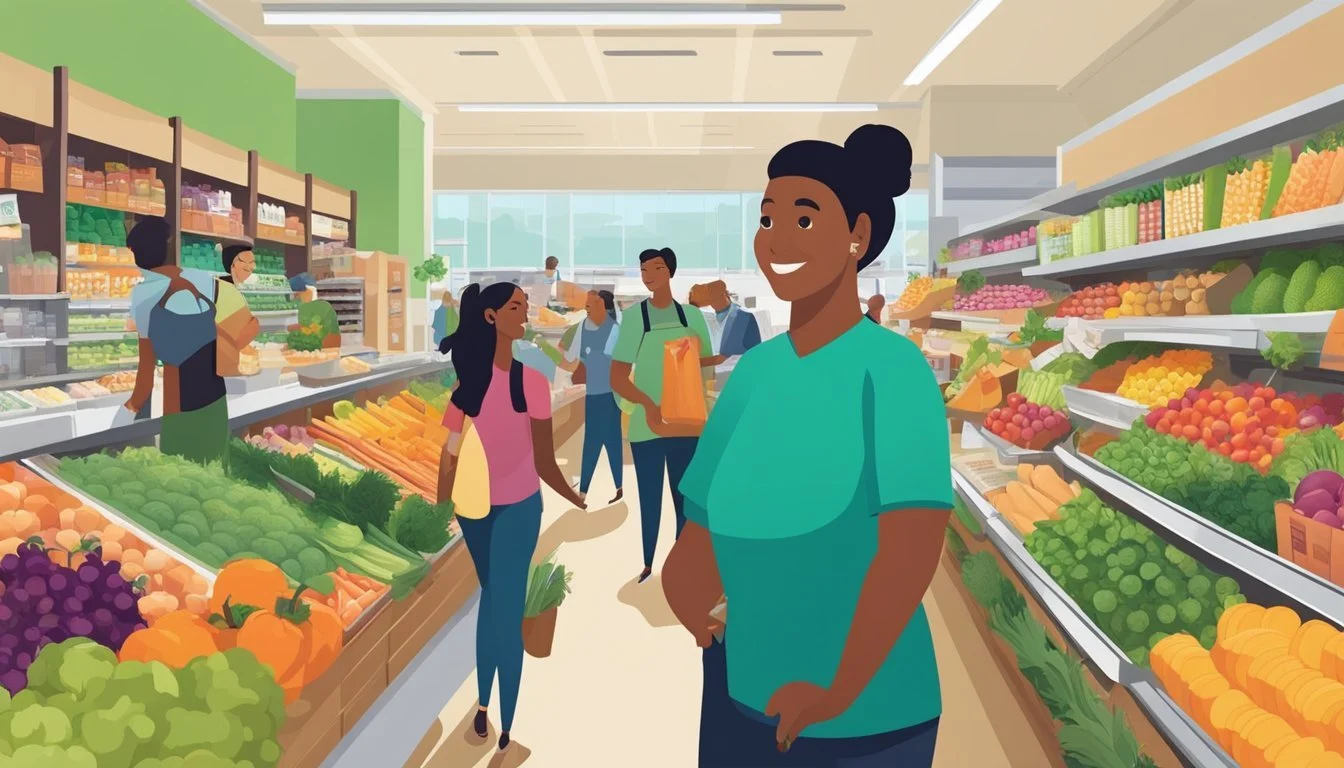Guide to Food Co-Ops in Long Beach, CA
Your Essential Resource to Local Collective Shopping
In Long Beach, California, food cooperatives offer a compelling shopping alternative for those interested in community-centered, high-quality, and affordable groceries. Unlike conventional grocery stores, food co-ops are often community-owned and operated, where members make collaborative decisions and share benefits. The Long Beach Grocery Cooperative (LBGC) exemplifies this ethos, with a commitment to wholesome products and healthy living. Food co-ops in the area are becoming increasingly popular for their focus on local produce, natural ingredients, and fostering a tight-knit food community.
Navigating the scene of food co-ops in Long Beach can save consumers money while providing access to a diverse range of organic and locally-sourced goods. They are not just stores but are part of a larger movement towards sustainable consumption, where every purchase supports local farmers and producers. By choosing a cooperative model, these establishments ensure that any profits are reinvested into the community or returned to the members, rather than being absorbed by large, impersonal corporations.
Food co-ops are more than just grocery stops; they're a statement of support for a sustainable and equitable food system. In Long Beach, they stand as champions of food quality, ethical sourcing, and consumer empowerment. Whether it's through participating in cooperative governance or simply enjoying the fruits of local agriculture, residents have much to gain from integrating food co-ops into their regular shopping routine.
The Basics of Food Cooperatives
Food cooperatives play a pivotal role in community engagement and economic empowerment. They offer an alternative to standard supermarket models, focusing on member ownership and democratic operations.
What Is a Co-Op?
A cooperative, or co-op, is an organization owned and controlled by the people who use its services. They pool their resources to meet common needs, typically offering grocery products that prioritize quality and community values. In Long Beach, a co-op serves as a hub where community members unite to gain access to responsibly sourced groceries, reflecting a shared commitment to economic cooperation and social well-being.
Key Principles of Cooperatives
The cooperative movement is founded on internationally recognized principles:
Voluntary and Open Membership: Co-ops are open to all who are willing to accept the responsibilities.
Democratic Member Control: Operated by members who actively participate in setting policies and making decisions.
Members' Economic Participation: Members contribute equitably to, and democratically control, the capital of their cooperative.
Autonomy and Independence: Co-ops are autonomous, self-help organizations controlled by members.
Education, Training, and Information: Co-ops provide education and training for members, elected representatives, and employees.
Cooperation among Cooperatives: Co-ops serve their members by working together.
Concern for Community: While focusing on member needs, co-ops work for the sustainable development of communities through policies and programs.
Benefits of Joining a Co-Op
Members gain multiple benefits from participating in a food co-op:
Democratic Influence: Each member has a voice in the decisions affecting the co-op, from product selection to mission-related initiatives.
Economic Savings: Ownership can lead to cost savings through patronage dividends and members-only deals.
Educational Opportunities: Co-ops often offer programs aimed at improving nutritional knowledge and culinary skills.
Community Enrichment: Through collaboration and support, co-ops foster a tighter-knit community focused on sustainable practices and inclusive growth.
Food Co-Ops in Long Beach
Food cooperatives in Long Beach, CA, represent a community-driven approach to accessing fresh, organic, and locally sourced produce. These hubs often focus on sustainability and foster direct relationships between consumers and small-scale producers.
History and Growth
Long Beach has witnessed a growing interest in community-oriented shopping alternatives, with initiatives like the Long Beach Grocery Co-op reflecting a demand for local and organic options. The development of food co-ops in the area is a response to the community's desire for involvement in the food supply chain, where they can exercise ownership and partake in the operation of the stores.
Popular Co-Ops in the Area
The Long Beach area hosts a variety of food cooperatives and markets striving to offer an array of local, high-quality consumables. One such entity, Long Beach Grocery Co-op, has been in the news for its efforts to set up a brick-and-mortar location, aspiring to connect Long Beach residents directly with local food producers. In support of the co-op model, residents may also turn to online platforms and nearby farmers' markets for locally-sourced food, ensuring the co-ops' alignment with community needs and growth in the region.
Membership and Ownership
In Long Beach food co-ops, members enjoy the unique position of being both customers and owners, affording them certain rights and advantages. Members contribute capital to the co-op and in return, receive benefits that enhance their shopping experience and involvement in the community.
Becoming a Member
To become a member of a Long Beach food co-op, individuals purchase a share, signifying their stake in the ownership of the cooperative. This process typically requires an upfront investment or fee. In Long Beach, the Long Beach Grocery Co-op, for instance, encourages locals to become Legacy Owner/Members, which accelerates the opening of new co-op facilities.
Rights and Responsibilities
Member-owners hold the right to vote on important matters affecting the co-op, such as board elections and significant policy changes, ensuring democratic control. They must also fulfill certain responsibilities, which can include active participation in decision-making and, at some co-ops, contributing labor to the co-op’s operations.
Member-Owner Benefits
Member-owners of Long Beach food co-ops enjoy several financial advantages:
Discounts: Reduced prices on purchases, as a direct benefit of membership.
Profits: A share in any profits generated by the co-op, often distributed as patronage refunds based on the member’s level of purchases.
The member-owner structure also fosters community development and access to high-quality local foods, enhancing the value of each membership beyond mere monetary savings.
Sourcing and Products
In the context of Long Beach, food co-ops prioritize a symbiotic relationship with nearby growers and champion the availability of wholesome, organic products. This focus ensures that the consumer receives high-quality and sustainable goods that align with the cooperative's core values.
Working With Local Producers
Food co-ops in Long Beach are diligent in their partnerships with local producers to stock their shelves. By fostering these relationships, they uphold a commitment to sustainability and support the local economy. Local produce often travels less distance to reach the co-op, ensuring freshness and reducing the carbon footprint.
Local Harvest Standards: Producers are carefully selected based on strict criteria to ensure that their harvest methods align with the co-op's quality and ethical standards.
Product Diversity: Co-ops offer a variety of locally sourced goods, ranging from fresh fruits to artisanal cheeses, often organic.
Seasonal and Organic Offerings
Adhering to the rhythms of nature, Long Beach food co-ops embrace the concept of seasonal products. This approach guarantees that consumers have access to produce at its peak of flavor and nutritional value.
Organic Products: The co-ops strive to source organic items whenever possible, to provide options free from synthetic pesticides and fertilizers.
Sustainability and Quality: Seasonally available items reflect a commitment to sustainable practices and high-quality standards, underpinning the co-ops' goal of offering environmentally responsible options.
Economic and Community Impact
Food cooperatives in Long Beach play a crucial role in nurturing both the local economy and community solidarity. They foster economic growth tailored to the needs of community members, while also investing in community engagement through education and inclusive participation.
Supporting the Local Economy
Food co-ops like the Long Beach Grocery Cooperative bring tangible benefits to the local economy. They are community-owned, which means profits are reinvested back into the area, enriching local resources. They often prioritize local suppliers, which bolsters other local businesses and can lead to job creation. Additionally, co-ops typically:
Offer member benefits such as shopping discounts.
Provide patronage refunds, allowing members to share in the financial success.
Contribute to a sustained increase in community wealth by keeping funds circulating locally.
Community Engagement and Education
Engagement and education are at the core of a food co-op’s philosophy. The Long Beach Center for Economic Inclusion and various co-ops actively increase financial understanding within underserved communities, empowering them through knowledge. They also prioritize:
Open membership and democratic control, granting voting rights to members on major decisions.
Educational initiatives that focus on the importance of nutritious, high-quality foods.
Events and programs that emphasize the value of cooperative enterprise in the community's well-being.
Shopping Experience
The food co-ops in Long Beach, CA, are redefining grocery shopping with their focus on high-quality ingredients and fair prices, ensuring that members often find the best value for their money. These co-operative stores prioritize a mix of convenience and quality food, providing a unique experience to their customers.
Finding the Best Value
Shoppers at Long Beach food co-ops typically benefit from discounts due to the collective purchasing power and business model of co-operatives. High-quality products are often sourced from local producers, ensuring that prices remain competitive. Members can commonly save on their purchases, particularly on organic and specialty items, which are priced with a community-oriented approach.
Convenience and Accessibility
Food co-ops in Long Beach strive for convenience in location and shopping hours, considering the community's needs. Customers enjoy the ease of shopping at establishments like the Long Beach Grocery Cooperative that are community-owned and centrally located. Accessibility extends to the range of products offered, from basic staples to rare finds, all selected to promote healthier options for the community.
Operational Insights
Efficient management and careful budgeting are crucial for the operation and financial sustainability of food co-ops in Long Beach.
Management and Governance
A food co-op is typically led by a Board of Directors, which is democratically elected by its members. The Board creates policies and makes strategic decisions, while the day-to-day operations are overseen by a Manager. This dual structure ensures adherence to co-op principles and responsive operational oversight. For instance, the Long Beach Grocery Co-op would have a governance framework to guide its initiatives and community engagement.
Budgeting and Financial Sustainability
Budgeting in food co-ops is a strategic tool for long-term sustainability. Resources are allocated with a focus on both maintaining daily operations and investing in growth opportunities. Key components include:
Operations Budget: Essential for covering ongoing costs like inventory, staff wages, and utilities.
Capital Campaign: Requires strategic planning to raise funds for significant expenditures, which may include store renovations or expansions.
Profit Reinvestment: Profits are often reinvested into the co-op to enhance its resources and service offerings, rather than being distributed as dividends.
Long Beach food co-ops aim to balance fiscal responsibility with their mission to serve the community, reaffirming their commitment to economic and social well-being.
Challenges and Adaptations
Local food co-ops in Long Beach, CA have encountered various challenges that have necessitated adaptations in their operations. They have dealt with both economic shifts and the impacts of the COVID-19 pandemic, leading to innovative approaches to serving their community.
Adapting to Economic Changes
The Long Beach community experienced changes in grocery ownership and closures, creating a need for sustainable food sources. Food co-ops have taken on the challenge by attempting to establish cooperatively owned stores. These co-ops require fundraising and the accumulation of a minimum amount of capital from their members to build a robust operating base. Transitioning to a co-op model means that they have democratic control and are driven by community needs rather than profit margins.
Food Co-Ops During the Pandemic
During the COVID-19 pandemic, food co-ops in Long Beach like most organizations, faced disruptions. They had to navigate supply chain issues, shifts in customer demand, and heightened safety protocols. To adapt, the co-ops implemented measures like online ordering and curbside pickup. They focused on maintaining the flow of high-quality, healthy food options to members while also observing strict health guidelines. This period also underscored the importance of local food systems and reinvigorated community support for small-scale, cooperative food operations.
Future Perspectives
In Long Beach, the trajectory of food co-op initiatives and sustainability goals is particularly promising, setting the stage for transformative community impacts.
Growing Trends in Co-Op Initiatives
With increasing consumer awareness of the benefits of cooperative models, the Long Beach Grocery Co-op represents a larger national movement towards localizing food systems. Food co-op initiatives in Long Beach are aimed at fostering community ownership and offering quality food options. They are characterized by:
Community involvement: Emphasizing local engagement and decision power.
Education: Focusing on informing consumers about healthy food choices and sustainable practices.
These trends indicate a shift toward prioritizing local needs and community values in food systems.
Long-Term Goals for Sustainability
Long Beach food co-ops are not just about immediate consumer needs; they aim for lasting change. Long-term sustainability goals involve:
Inclusivity: Guaranteeing access to healthy foods across diverse socioeconomic groups.
Environmental stewardship: Implementing eco-friendly practices and promoting regenerative agriculture.
Long-term goals are aligned with the values of social equity and environmental responsibility—cornerstones of the food co-op philosophy.

